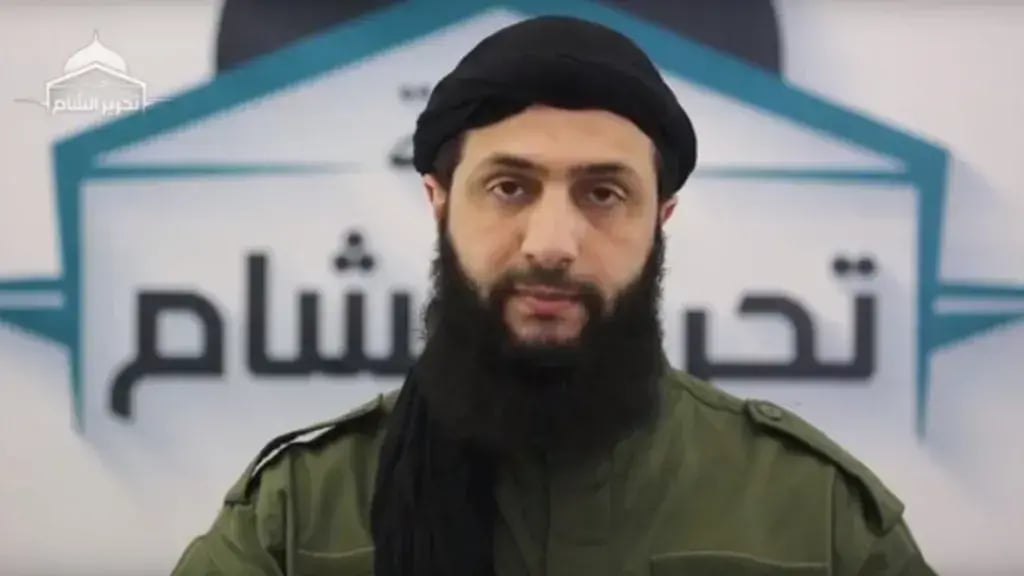Getting your Trinity Audio player ready...
The collapse of the Assad regime in Syria in the face of rebel groups, primarily Hayat Tahrir al-Sham headed by Abu Mohammad Al-Julani, constitutes a genuine turning point in the Middle East. For years, the murderous Assad regime brutally repressed the gamut of Syria’s minority groups and, with Russian and Iranian support, managed to repress rebellions and assert its authority. The fall of Assad is another sign of the collapse of the Iranian axis on Israel’s northern front. Israel must now prepare for the new reality that is rapidly emerging in front of our eyes.
It is unclear whether Al-Julani’s attempts to reunite Syria into a single entity will succeed or whether Syria will continue to be a patchwork of minority groups fighting each other. Israel, for its part, should continue backing the minorities that cooperate with it (especially the Druze and the Kurds) and keep hostile elements away from its border.
2 View gallery


A torn photo of former Syrian President Bashar al-Assad
(Photo: Chris McGrath/Getty Images)
Israel also did the right thing by exploiting the opportunity to destroy Syria’s remaining military capabilities and ensuring that its air defense capabilities, military equipment and offensive weaponry do not fall into the hands of extremist forces. In this context, it is important to remember that Assad had an enormous stockpile of chemical weapons, and it can be assumed that the IDF airstrikes did not manage to destroy them all. If this weaponry falls into the hands of Islamist extremists, this could set a dangerous precedent not just for Israel but also for Western countries.
In my opinion, before Western countries rush to embrace the emerging government in Syria and its backers in Ankara, they must demand the immediate entry of forces trained to collect all the stockpiles of non-conventional weapons and capabilities, (as the United States and Russia partly did in 2013) – the sooner the better.
But this is just for the short-term. There are other issues to consider for the longer term.
As Damascus re-emerges, it will face three strategic alternatives:
The most likely alternative is to continue deepening ties with Turkey, and to be the spearhead of Erdogan’s expansionist regional policy. Al-Julani grew up in the lap of radical Sunni Islam and his relationship with Erdogan has grown stronger over the years. Eventually, Erdogan financed, trained and prepared Hayat Tahrir al-Sham and provided the political umbrella that supported Al-Julani’s takeover of Syria. Whether Al-Julani aims to establish an Islamic caliphate or not, the easiest decision for him is to remain close to Erdogan, his new patron.
The second alternative is to fall into the honey trap that Iran will likely set for Damascus. It is difficult to see Iran giving up easily on its strategic asset in Syria, as the loss of Syria leaves Iran bruised and having lost its position as defender of the Shiite axis. Iran’s presence in Syria was key to the flow of weapons to Hezbollah and, without this, it will be difficult for Iran to rehabilitate the terror organization and to try to make it a significant threat to Israel once again. Iran is likely to seek ways to maintain its channel of influence in Syria, to make far-reaching proposals to Al-Julani, and to position itself in competition with Turkey for the heart of Damascus.
As momentum is rebuilding to end the war in Gaza and to reopen the path of normalization with Saudi Arabia, Israel must also bring the re-stabilization of Syria into the regional equation
The third alternative is for Syria to return to the fold of the Arab states. The departure of Assad, who was expelled from the Arab League for massacring his own people, increases the motivation of the Gulf States to return the new Syria to the fold. Even before his fall, much was published about Assad’s aim to return to the fold of the Arab League and also of the fact that Iran did not look upon this kindly. For that reason, Iran chose not to throw its full weight into saving Assad. It is also not inconceivable that Turkey saw the warming of relations between Assad and the Gulf States as a threat to its interests and chose the timing of the uprising accordingly. The opposition of these two destabilizing countries expresses more than anything why this alternative is the correct one for those seeking to rebuild Syria as an independent state.
And what is Israel's interest?
Israel has an obvious interest in Syria being as moderate as possible. Israel has a vital interest in keeping Iran out of the picture and an equally large interest in preventing the emergence of a Sunni Islamist caliphate on its border. Israel also has an interest in helping the Kurdish and Druze minorities, with whom it has a longstanding relationship. It is not surprising that the Israeli interest overlaps with that of the pragmatic Arab states, which are also aiming to reduce Iranian and Islamic influences in their countries.
And now, as momentum is rebuilding to end the war in Gaza and to reopen the path of normalization with Saudi Arabia, Israel must also bring the re-stabilization of Syria into the regional equation. Having Arab nursemaids manage the rehabilitation of Syria would be infinitely better than the other alternatives and would allow Israel some influence over prioritizing civil reconstruction over military reconstruction, while being a partner in deterring Iran and Turkey from continuing attempts to take over Syria. Israel must be vigilant. There is no room for premature celebration and Israel, for a change, must strive to influence the reality as it emerges and not just be dragged along by it.
Dr. Eyal Hulata is Israel’s former National Security Advisor and head of the National Security Council. He is currently a senior international fellow at the Foundation for Defense of Democracies (FDD).
nhh



